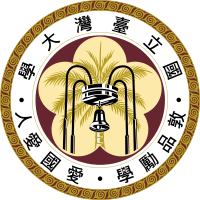【多元觀點】Chun-chieh Huang,〈Preface to Humanitas Sinica: A Source Book of Chinese Traditional Humanism〉
【多元觀點】
Preface to Humanitas Sinica: A Source Book of Chinese Traditional Humanism*
Chun-chieh Huang

Professor of Sinology, Head of the Department of Asian Studies at the Faculty of Arts, University of Ljubljana and Director of the Slovene National research program Asian Languages and Cultures.
Preface
My colleague, Professor Kirill Thompson, has spent several years compiling and editing this source book of Humanist readings from traditional Chinese history, literature and mainly philosophy from early antiquity to the Song period. This balanced compendium of illustrative samples represents a solid contribution to scholarship, and I am most delighted to have the opportunity to offer a few of my personal impressions, to serve as a reference for readers.
The Chinese Humanist tradition is very long and very deep. Many scholars argue that after the first millennium BCE, the essential change that took place in ancient Chinese civilization was not—as had been the case in the axial breakthroughs of other civilizations around the world at that time—in the relation between humanity and nature or between humanity and the supernatural, but in interpersonal relationships. The honorable and harmonious arrangement of interpersonal relationships has been the core concern of Chinese civilization for the past two millennia. In the dialogues between Confucius and his peers recorded in the Analects, the term for humanity or humaneness, ren, appears 105 times, across 58 chapters. It would be no exaggeration to say that this term, ren (仁) has persisted for several thousand years as the most important value in East Asian Confucian traditions. Wing-tsit Chan affirmed in his A Source Book in Chinese Philosophy (Princeton: Princeton University Press, 1963): “If one word could characterize the entire history of Chinese philosophy, that word would be humanism.” Indeed, this was a most accurate judgment. However, the crucial question remains: what are the characteristics of Humanism in the context of Chinese civilization?
In the present source book of Chinese Humanism, Professor Thompson stresses that Chinese Humanism is especially manifested in Confucian relationalism. This is a very perceptive assessment. In sharp contrast with the individualism associated with the liberal values of the modern West, Confucian Humanism is deeply infused with communitarianism. From the very beginning, Confucius and his followers never conceived of human existence in terms of individual persons, separate from the community. Rather, Confucianism held that “the self” is formed out of intimate interactions with “the other,” with whom the self is, ultimately, organically related. On this basis, in the introduction to the present book, Professor Thompson aptly stresses that Chinese Humanism strongly emphasized interpersonal relations and duties, particularly from the Song dynasty onwards. Consequently, the philosophical significance of ren lies in the ethical commitment it requires of each person in the context of their community.
I would like to supplement this account by suggesting that the term “interrelationalism” perhaps discloses the deeper significance of the relationalism of Confucian Humanism. Interrelationalism, in Confucian Humanism, signifies not only the social ethics of human relationships, but also refers to humanity’s relationship to history and humanity’s relationship to a transcendental ultimate reality.
With regard to humanity’s relationship to history, the human being of traditional Chinese culture is not merely homo politicus or homo economicus; more profoundly, he or she is homo historien. Chinese Humanism is deeply imbued with a profound consciousness of time. In traditional Chinese culture, the human person is baptized in the long stream of Chinese history; thus, the purpose of human existence is to realize and practice the classical paradigm and wisdom established by the ancient sages and the late worthies. In the context of traditional Chinese culture, the pursuit and realization of human values and meaning must be undertaken and achieved in the context of time. Furthermore, the realizations achieved in the course of historical experience must conform to the transcendental principle.
With regard to humanity’s relationship with the transcendental principle, the Chinese Humanist tradition developed a kind of religious consciousness unique to Chinese culture. Confucius freed the early Zhou concept of the “Mandate of Heaven” (tianming) of its cosmic and political overtones and refocused its significance on nature and the human mind. Confucius thus completed the “inward turn” of the time-honored conception of the Mandate of Heaven. Thus, when Confucius spoke of knowing “Heaven’s Mandate,” he was departing from the early Zhou idea of Heaven as a controlling force in human affairs and began to stress people’s need to engage in the nurturing and cultivation of their own nature and inner mind in order to resonate with the will of Heaven in their life. When Confucius spoke of “knowing Heaven’s mandate,” he called upon people to confirm, test and know the lofty and far-reaching will of the cosmos in the course of their moral-ethical practice. In the light of this, the argument that the notion of the Mandate of Heaven leads people to become morally passive, as well as the thesis that Confucius’ religious faith was prior to his moral-ethical practice, become difficult to sustain. In the midst of Confucius’ “limited” practice he realized the “unlimited” meaning of human life. In the context of Confucius’ thought, the doctrine of the Mandate of Heaven can be realized only in the midst of one’s daily interpersonal ethical activity. In Confucius’ Humanism, the point is not that the Mandate of Heaven is prior to and determinative of human existence, but rather that it is only through each person’s own positive efforts to carry out his moral responsibility in the practice of daily life that he may confirm the reality of the Mandate of Heaven in his own heart. Consequently, we could say that Chinese culture manifests a sort of immanent yet transcendental Humanistic tradition.
Chinese Humanism is a spiritual-cultural tradition that embraces all of the multileveled and layered intimate interactions and mutual interpenetrations between person and person, person and history, person and the Mandate of Heaven, and person and nature. This is the general character of Chinese Humanism, which reflects the deep spirit of Chinese culture. I believe that the publication of the present book will prompt many new discussions on the character, and many contributions, of traditional Chinese Humanism.
Chun-chieh Huang
December 30, 2015
*本文係本院所發行Kirill O. Thompson, Humanitas Sinica: A Source Book of Chinese Traditional Humanism (Göttingen and Taipei: V&R unipress and National Taiwan University Press, 2016)一書之序。



